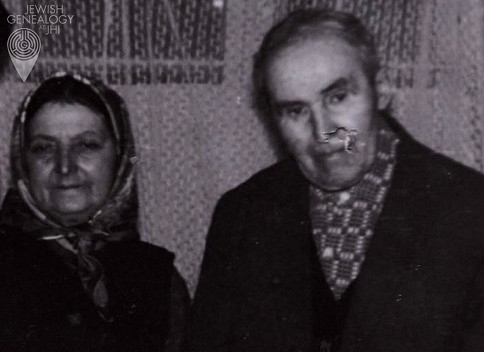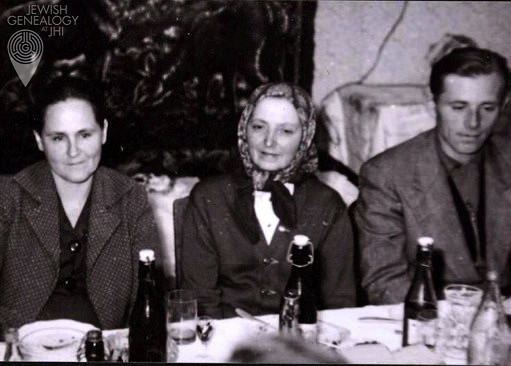- News
- Events
- Oneg Shabbat
- Collections
- Research
- Exhibitions
- Education
- Publishing Department
- Genealogy
- About the Institute
- Bookstore

„My Mom, Michalina, was baking big loafs of bread everyday and secretly carried them to the woods. She bathed the little ones, and sewed them new clothes. During the cold winter months, children of the run-aways spent the nights in the house. My mom would then feed, wash, hug, and put them to bed. It was the happiest years of her life. She was saving shivering little beings, looking in their sad eyes, she put them to sleep. My God! How much she wept telling us these horrible war-time stories“. This is how Mrs. Jadwiga writes about her mom, three years after her death, in a letter that we have received from her. „I’m longing to meet the children, or grandchildren of our Jews“.
This story took place in the village of Pyplo, Volyn region (now Ukraine), in the years of 1942 to 1944. After the Germans captured these lands, Jews escaping the massacres in the nearby towns of Ludwipol, Rokitno and Korzec, hid in the local woods. In the woods they did not know, without food or shelter, they waited. Looking for an escape, or a safe shelter, they must have been aware that each day someone could have tipped the Germans about their hideout. Then it would be certain death.
This is not what happened. When a group of them met a farmer from Pyplo, Mikolaj Kuriata, and his family, the rumour about Polish villagers saving Jews, spread instantly. Soon, 50 Jews found shelter in the barn, Kuriata’s family house, and nearby woods. Even though, as Kuriata testified in 1949, „other Jews were against taking such a number“, they all safely survived the war. Living in the forest, they were fed and provided clothes by the Kuriata family. Those who had the strengh did simple work.


In the testimony given by Mikolaj Kuriata, we found another fragment which makes this story even more unique. „Cousins of mine, neighbours even, knew that I was helping them, but reacted favorably to that, and even helped me, providing food, or warning of incoming danger. My charges called me their yiddishe papa“ – Mikolaj recounted after the war. Not only all the people from Pyplo knew of the Jews in hiding, but also the local communist partisans. No one, so much, had ever informed the Germans.
Although the story of these particular witnesses to the cruelty of war ended well, the Kuriata family is left with a bitterness. 70 years later Jadwiga Kuriata describes in a letter sent to the Jewish Historical Institute: „My Dear Mom passed away three years ago. She was still waiting, till the very end, for maybe one of the rescued Jews to come and visit her. She didn’t live to see that. Pity...“
The last trace of the rescuees ends in the 60’s, when a few of them shared their stories with Yad Vashem, asking to grant Mikolaj Kuriata a title of a Righteous Among the Nations. Neither the Jewish Historical Institute, nor the Yad Vashem Institute, were able to find these people.
Does anyone know what happened to the Jews rescued by the Kuriata’s from Pyplo?